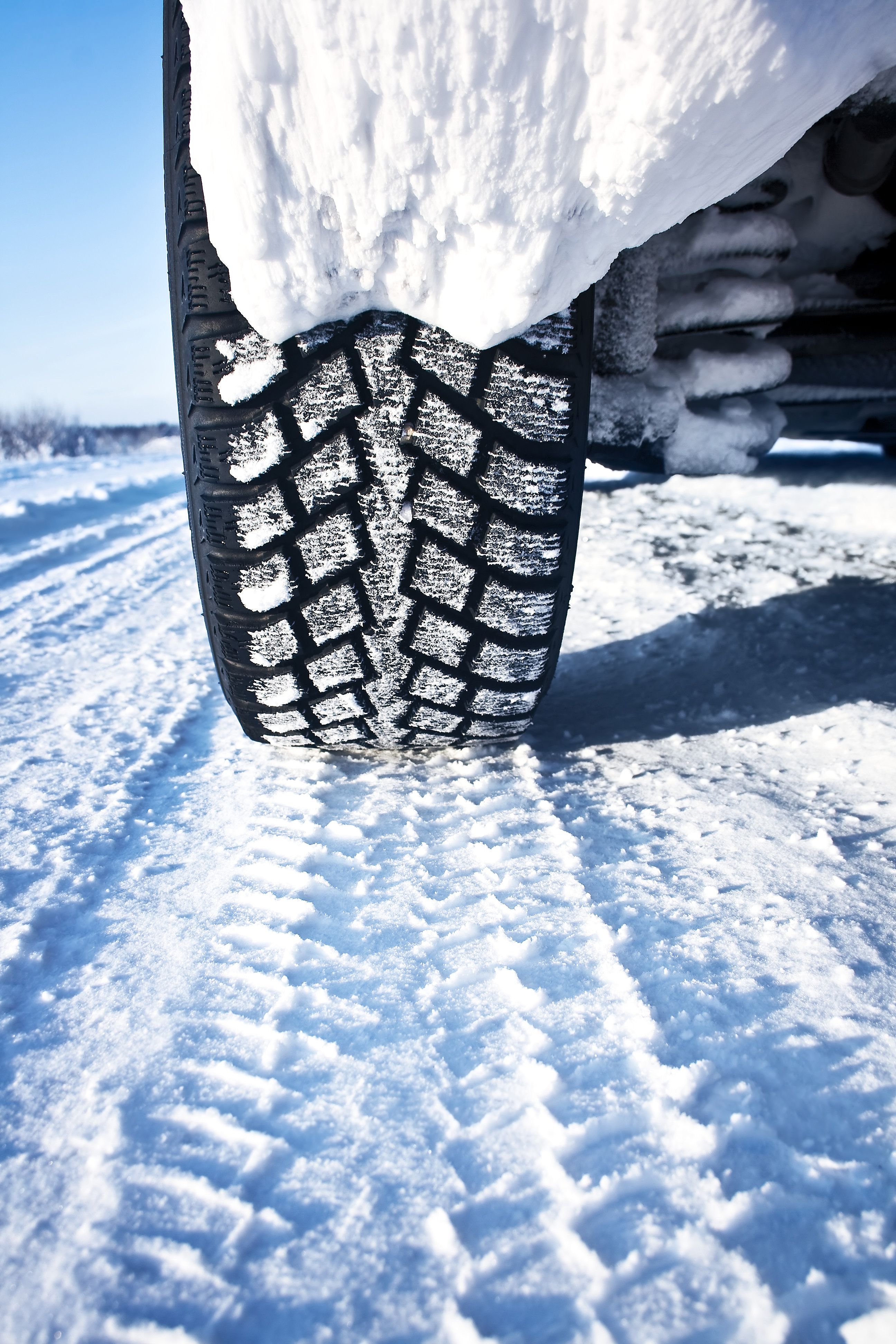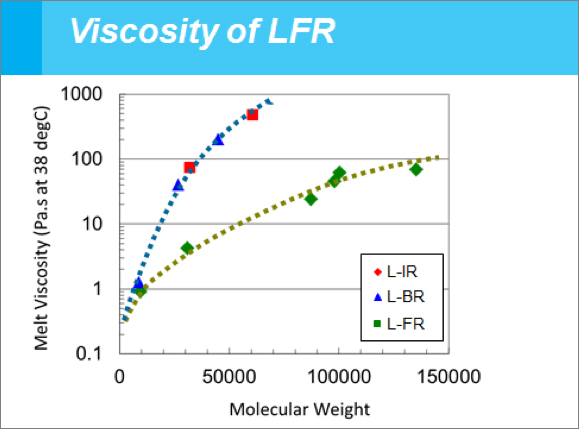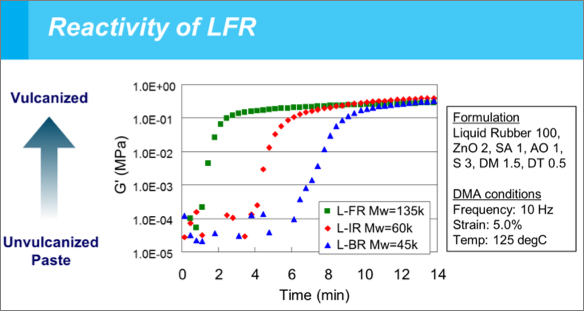01/23/2020 | Press Releases
Kuraray at Tire Technology Expo 2020: KURARAY LIQUID RUBBER made from sugar cane: Co-crosslinking, improved grip and more sustainability
As one of the leading manufacturers of speciality chemicals, Kuraray will present new liquid rubber grades at the Tire Technology Expo 2020 in Hanover, Germany, at booth C438. A special focus will be on Kuraray's bio-based Liquid Farnesene Rubber.
Hattersheim/Hanover, January 2020. A long-lasting high level of road grip by tyres is extremely important for safety. At the same time, consumers expect replacement of petroleum-based materials, which provide the required elasticity in the tyre production process. Kuraray, a leading manufacturer of speciality chemicals, has developed 'Liquid Farnesene Rubber' (L-FR), which is synthesized sustainably from beta-farnesene derived from renewable resources such as sugar cane. Adding Liquid Farnesene Rubber to the compound improves the performance and lifetime of tyres. This new material keeps its elasticity, especially at lower temperatures and provides optimal adhesion on snowy and icy roads. Tyre manufacturers also benefit from faster cross-linking and lower viscosity. This leads to a more efficient production process.
"Adding our newly developed bio-based Liquid Farnesene Rubber gives rubber compounds low viscosity and they remain elastic after vulcanization, even at low temperatures," says Ralph Böhm, Senior Manager Sales Elastomer at Kuraray. He adds: "With its unique structure, Liquid Farnesene Rubber offers an optimum performance balance in treads, especially in terms of grip on snow and ice.”
The material, which is made from renewable resources, can replace conventional liquid rubbers in a wide range of tyre manufacturing applications. Liquid Farnesene Rubber is based on beta-farnesene, a renewable monomer derived from sugar cane. Using established fermentation processes, proprietary yeast strains convert sugar sources such as sugar cane into beta-farnesene. Liquid Farnesene Rubber is synthesized from the basic monomer by polymerization.
Permanently elastic tyres
The special structure of highly branched molecular chains reduces entanglements and results in lower viscosity compared to liquid isoprene rubbers. Due to its high molecular weight, Liquid Farnesene Rubber co-crosslinks during the vulcanization process. There is a significant reduction in "bleeding" of the low-molecular components to the outside surface, which occurs with conventional plasticizers – and that results in permanently high elasticity and constant properties over the entire lifetime of the tyres.
Faster crosslinking, higher processing rates
In addition, tyre manufacturers benefit from the fast crosslinking of Liquid Farnesene Rubber. Its good co-reactivity ensures fast vulcanization. This allows shorter processing cycles, reduced energy consumption and higher processing rates.
"With its unique properties, Liquid Farnesene Rubber enables the development of tyres that reduce the fuel consumption of vehicles, generate less heat and stop vehicles safely even on icy surfaces," says Marcel Gründken, Manager Market Development & Technical Service at Kuraray. Manufactured from renewable resources and easy to process, the material increases efficiency and sustainability in tyre production."
About Kuraray
Established in 1991, Kuraray Europe GmbH is based in Hattersheim, near Frankfurt am Main, Germany. In 2018 the company generated annual sales of EUR 690 million. It has approximately 700 employees in Germany at its sites in Hattersheim, Frankfurt and Troisdorf. Kuraray is a global speciality chemicals company and one of the largest suppliers of industrial polymers and synthetic microfibres for many sectors of industry. Examples are KURARAY POVAL™, Mowital®, Trosifol® and CLEARFIL™. Kuraray Europe also has around 200 employees at six other European sites. They are also working on the development and application of innovative high-performance materials for a wide range of sectors, including the automotive, paper, glass and packaging industries, as well as for architects and dentists.
Kuraray Europe is a wholly owned subsidiary of the publicly listed company Kuraray Co., Ltd., which is based in Tokyo, Japan, and has more than 10,000 employees worldwide and sales of EUR 4.8 billion.
Robin Conrad
Marketing & CRM
Kuraray Europe GmbH
Philipp-Reis-Straße 4
65795 Hattersheim am Main
Tel.: +49 69 305 85933
E-Mail: Robin.Conrad(at)kuraray.com
Internet: www.elastomer.kuraray.com
Dr. Bettina Plaumann
Head of KEG Communications & Marketing
Kuraray Europe GmbH
Philipp-Reis-Straße 4
65795 Hattersheim am Main
Tel.: +49 69 305 85797
E-Mail: Bettina.Plaumann(at)kuraray.com
Internet: www.kuraray.eu
Christopher Kampfmann
Wortwahl – Agentur für Unternehmens- und Onlinekommunikation
Bahnhofstraße 123
63263 Neu-Isenburg
Tel.: +49 6102 36678-22
E-Mail: kampfmann(at)wortwahl.de
Internet: www.wortwahl.de
>> Download this press release as an adobe acrobat document here
Captions/Source Photos: Kuraray

Bio-based and high-performance: Kuraray's new sustainably produced Liquid Farnesene Rubber gives rubber compounds excellent elasticity even at low temperatures. This gives winter tyres optimal grip on snow and ice.

More grip with sugar cane: Liquid Farnesene Rubber from Kuraray is sustainably synthesized from beta-farnesene from renewable resources such as sugar cane. The material can replace petroleum-based liquid rubbers in many tyre manufacturing applications, and its mechanical properties improve tyre performance.

Special structure for easier processing: Highly branched molecule chains in Liquid Farnesene Rubber (L-FR) produce significantly lower viscosity and a higher molecular weight compared to liquid isoprene rubber. Therefore, rubber compounds with Liquid Farnesene Rubber have improved flowability.

Increased efficiency in tyre production: Thanks to a highly reactive double bond at the end of each molecular branch, rubber compounds based on Liquid Farnesene Rubber (L-FR)from Kuraray react significantly faster during the vulcanization process. This reduces the energy used in tyre production and increases processing rates.

 News Archive 2024
News Archive 2024